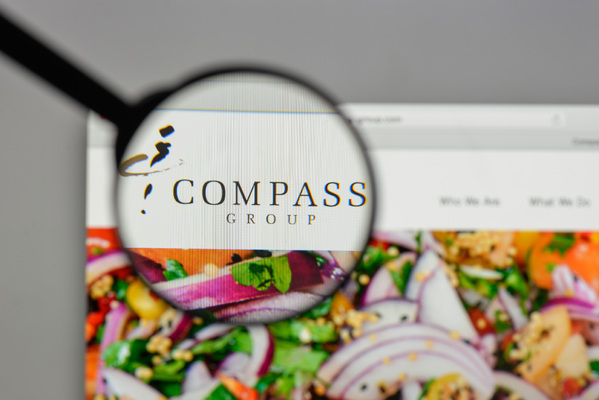Technology Prospectus 2019 – How to attract and retain staff
Hospitality is catching on to the fact that there's a new way to recruit and retain workers that can benefit both employees and employers alike. Elly Earls reports
A severe people shortage, a declining high street and the prospect of higher costs and fewer workers from March 2019 have combined to create a challenging staffing market for the hospitality industry.
For these reasons, hospitality operators have had to accept that investing in technology has become the only way to remain competitive when it comes to attracting and retaining talent.
âHospitality may have been slower than some industries to start adopting the technology, but is now catching up and it has more scope to take advantage than many other sectors,â says Henry Seddon, managing director at software company the Access Groupâs hospitality division.
âIn an uncertain environment with a severe skills shortage, that means reacting more quickly to recruitment needs, ensuring prospective employees follow a seamless process and have the ongoing flexible training and support that they expect once appointed. In simple terms, they have needed to embrace technology into their HR processes as well as their operations.â
DIRECT RECRUITMENT
Getting recruitment right starts with meeting potential employees where they are most comfortable â" on their phones. âMobile friendly recruitment solutions are an absolute necessity today, with many applicants only having a smartphone to access messages and interact with potential employers,â Seddon says.
Equally crucial is that the mobile recruitment process is fast, flexible and intuitive.
âOn-demand information provides quick and easy interaction at their convenience, cutting out many layers of time-consuming admin and enabling recruiters to secure the best talent available because of their flexibility,â he says. âQuite simply, if recruiters donât respond quickly and efficiently, the best talent will have been hired by someone else.â
With more and more potential employees seeking flexible working hours (over 92% of working 18- to 34-year-olds according to Timewise) the industry has also seen an explosion of technology platforms specifically designed for shift workers.
Syft, for example, cuts out the traditional agency middleman and gives potential
employees access to flexible shifts and employers the chance to source fully-verified workers on demand, all through an easy-to-use app.
âIt was only a matter of time before a sector like recruitment was disrupted with innovative technology,â says chief executive and cofounder Jack Beaman. âMany of the flaws that existed, such as a lack of control and choice, spiralling and opaque fees, and inconsistent worker quality were due to the inefficient middlemen in traditional agencies. These days employers and jobseekers can directly connect, empowering both parties to fill shifts and find work as needed â" an open, transparent and fair break from the past.â
Catapult is another on-demand staffing app. For co-founder and director Oli Johnson, new staffing and recruitment solutions also offer wider benefits to the sector.
âThe sector has significant potential to cater for different lifestyles and ages by embracing flexible working programmes,â he says. âWe are asking our workers and employers to spread the message that flexible working provides the perfect way to dip your toe into hospitality and discover the wealth of diverse roles and experiences that are out there.
âThereâs also a big opportunity to create better experiences for workers and businesses alike, and we expect that over the next 12 months there will greater experimentation and greater adoption of different recruitment and staffing models that reduce the costs to business and bring greater benefits to the people working in these businesses.â
Laurent Gibbons, founder and chief executive of on-demand temp staffing platform Staff Heroes, agrees. âPreviously employers and agencies could get away with mistreating workers, but with the advent of platforms like Staff Heroes it creates a completely transparent playing field where both employers and workers can see each otherâs rating and feedback, driving up the quality and experience for both employers and workers in the market.â
RETAINING TALENT
Once staff are either employed on a permanent basis or have become part of a flexible staffing pool, the next challenge is to keep them there.
Here, says Christian Brøndum, chief executive of online employee scheduling software company Planday, technology can help by delivering a better work environment and improving communication between managers and employees.
âIn tandem with the rise of the gig economy, there is a growing recognition that the happier the worker and the more control they feel they have in managing their own time, the more they will contribute and the more successful the business can be,â he explains.
Harri is a talent technology platform that helps hospitality businesses build, manage and engage their teams. Sales director Pete Willis says that once youâve employed people, itâs incredibly important to both engage with them and make sure you can deliver everything you promised during the interview.
The platformâs smart scheduling function helps match employees to the shifts they want and managers and employees also have several different ways to communicate quickly and easily â" through custom message groups, SMS and push notifications, the Facebook-esque company newsfeed and direct messaging. In the future, the company also wants to develop a barometer, which gives a percentage match of each employeeâs desired hours to their actual hours. âIf it falls below a certain percentage, the general manager will need to go in and sort this out,â Willis says.
SWIPE RIGHT
New HR and staffing technologies can also streamline the entire recruitment and employee management process for employers. A general manager using Harri, for example, doesnât need to think about sifting through CVs when they need to employ a new sous chef. They simply log onto the app, swipe left or right on potential candidates, all of whom are already verified, and drop them a message asking them to come in for a casual chat.
âWe manage the entire interview process, right to work verification, offer letters â" all the way to payroll without a single piece of paper,â says Willis.
Planday customers have reported that they can save an estimated 4% in payroll costs and 80% in time because they donât have to do so much admin, which typically adds up to seven hours a week. The entire recruitment and retention journey â" from advertising vacancies to career development â" is managed online through Access Hospitalityâs cloud-based HR software.
âIt enables immediate sign-off for advertising vacancies, posts straight to relevant online job boards, including Google, and once applicants enter their details they are automatically notified of what to expect and when,â says Seddon.
Then, when details are circulated to hiring managers, responses and actions are tracked with prompts issued when necessary, avoiding delays. Job offers can also be accepted online, terms and conditions acknowledged, compliance regulations completed and new starters set up on e-learning systems before they start, cutting down their induction period.
DATA-DRIVEN INSIGHTS
As is the case in so many other areas of the hospitality industry, the greatest benefits operators are seeing from implementing new staffing technologies come from data.
The best HR software can analyse factors including the impact of promotional activity, labour overhead costs and the reasons behind no-shows â" and then address them.
Catapult, for example, allows businesses to benchmark their offer against competitors and use the insights to adjust their offer to candidates. âActionable insights that increase your attractiveness can make all the difference in a local market, where the trade-off between secondary brands is more about working hours, travel, salary and perks,â says Johnson.
But itâs in the deployment of artificial intelligence and machine learning where the most interesting insights will come in the future. As Johnson explains: âThe blend of data and behavioural scientists in our team is helping us to take free-form answers from our candidates and turn these into structured data, which helps us continually improve our online platform and mobile app. In turn, this helps part-time workers access hospitality roles that suit their skills and motivations, and meets the need of businesses for skilled, flexible workers.â
Seddon predicts algorithms will also soon be able to identify trends in staff working patterns, warning, for example, if an experienced chef is likely to leave after a certain length of service and identifying when a new recruitment process should be started.
MOVE WITH THE TIMES
According to Seddon, two of the biggest barriers to the adoption of new staffing technologies are stubbornness and lack of awareness âThere will always be the attitude of âthis is what weâve always doneâ and âif itâs not broken, donât fix itâ but this response fails to recognise the challenges the hospitality industry is facing
and will result in getting left behind,â he says.
âSome operators also donât necessarily know what technology is available to them, and the positive operational impact they could have by embracing the digital age, or theyâre focusing on just getting the day job done and are too busy to step back and look at a different way of working.â
At the same time, there is a concern among many employers about how they successfully integrate new technologies into legacy systems. Yet, with stock, food and people costs set to continue to rise and more uncertainly and volatility inevitable as Britain adapts to life outside the EU, operators have little choice but to adapt.
Concludes Seddon: âTo succeed and flourish, hospitality operators should be introducing technology now to future-proof their business. By recognising and responding to the flexibility and efficiency that technology brings, hospitality can become proactive and data-led rather than having to wait to react to external influences.â
Creating a positive people environment at Hawksmoor
The senior management team at fast-expanding steak restaurant group Hawksmoor has always been focused on creating a positive environment where
people want to stay in an industry normally associated with short-term employment.
One of the key components of this people-focused strategy was investing in the AccessPeople solution to manage all scheduling, HR, payroll and time attendance, with a particular focus on eradicating confusion over holiday entitlement.
By including national insurance and holiday accruals as part of the visible rota wage cost, this issue was immediately eliminated, reducing staff turnover and offsetting many of the wage pressures the hospitality sector has seen since the introduction of the national minimum wage and the apprentice levy.
Hawksmoorâs employees, from frontline staff and general managers to head office managers and board members, were also impressed by how intuitive and easy to use the software is, particularly the self-service portal, which allows staff to manage their profiles, access documents, request training, view payslips, book holidays and directly access their holiday entitlement calculation.
Hawksmoor currently employs 678 people across its nine restaurants, its turnover is £39m and it has appeared for six consecutive years in The Sunday Times 100 Best Small Companies to Work For list.

Following a successful pilot in four of its central London locations during the Christmas period in 2017, Thai restaurant chain Busaba has scaled up its partnership with flexible staffing platform Catapult to 11 restaurants for the same period this year.
Jenny Aspray, Busabaâs head of people, who spearheaded the partnership, said: âRecruiting permanent staff is time-consuming. We needed people with the skills and experience to hit the ground running. Catapult helps us to staff up for peak shifts, which enables us to capture sales and ensure our team is not taking on extra hours.
âBecause I can trust things are running smoothly at a restaurant level, I am also able to focus on training and developing our own team members.â
Catapult uses an advanced algorithm that matches workersâ skills and experience
with employersâ requirements. Candidate profile videos on the platform then allow general managers to get a feel for applicantsâ personalities, allowing them to hand-pick staff from their pool.
As they scale the partnership across more locations, Busaba is using Catapult front of house staff less as ad hoc replacements and more as a tool for staying agile.
Oli Johnson, co-founder of Catapult, said: âIt doesnât take long for employers to see the benefits of being able to flex up with Catapult. We can help lower their fixed labour costs by avoiding overstaffing while still allowing them to take advantage of peaks.â
Odete Lavrado, general manager at Busabaâs Chelsea restaurant, says: âCatapult
is really easy to adopt. I can post shifts in just a few clicks and approve timesheets once they have finished working.
âCatapult has a rating system that lets you âfavouriteâ candidates or make a note of who weâd like to use again, which then gives those people first preference next time. Itâs great for us, as favourites get to know our restaurants and how we work, so theyâre capable of running a section rather than as a runner. It means we can be more consistent with the staff we use. Itâs a win all round.â
Sponsorâs comment:Â Access
Many of the challenges facing operators today are beyond their control, but a strong management team and the right tools can help weather the storm. One
guaranteed certainty is that technology has an increasingly important role to play in shaping how tomorrowâs hospitality sector looks, feels and succeeds.
Access Hospitality has brought together five best of breed solutions to form a hospitality management system that can help negate the impact of rising costs and staff disengagement, in order to allow operators to focus on what is important: guest experiences.
More than 1,300 UK bars, pubs, restaurants, hotels and food-to-go and casual dining operators are benefiting from efficiencies in their reservations, ticketing, EPoS, HR, financial, purchase to pay and property maintenance processes. With guests seeking nothing less than exceptional service, technology from Access Hospitality can reduce general and staff management administration
to enable your GMs and front of house to focus on delivering great guest experiences.


















